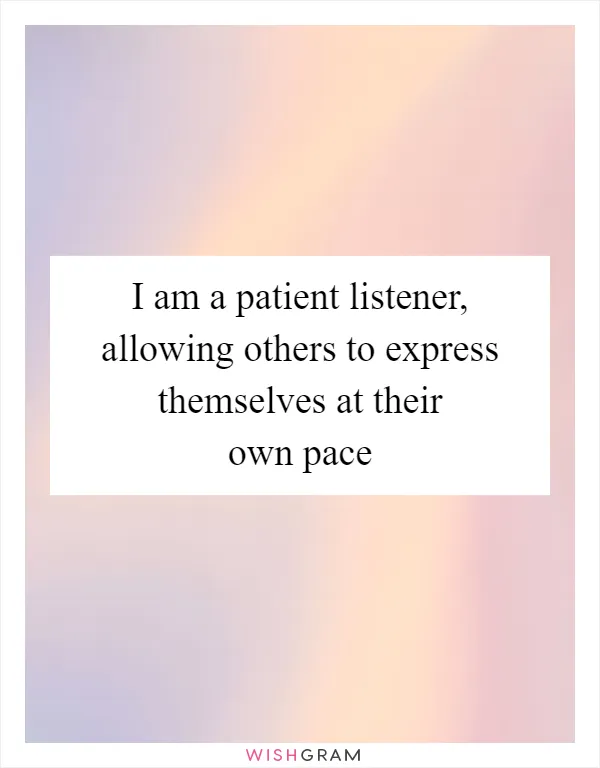I am a patient listener, allowing others to express themselves at their own pace
The affirmation "I am a patient listener, allowing others to express themselves at their own pace" can help you become a better listener. When you listen to others, you show them that you care about what they have to say. You also give them the opportunity to express themselves and share their thoughts and feelings with you.
Being a patient listener means that you are willing to take the time to listen to others without interrupting them or rushing them. You allow them to express themselves at their own pace, without judging them or trying to change their opinions. This can be difficult at times, especially if you have strong opinions or if you are in a hurry. However, by practicing patience and empathy, you can become a better listener and build stronger relationships with others.
One of the key benefits of being a patient listener is that it can help you understand others better. When you listen to others, you can learn about their experiences, their perspectives, and their values. This can help you build empathy and compassion for others, and it can also help you communicate more effectively with them. By understanding others better, you can build stronger relationships and work more effectively with others.
Another benefit of being a patient listener is that it can help you avoid misunderstandings and conflicts. When you listen to others, you can clarify their intentions and avoid misinterpreting their words or actions. This can help you build trust and respect with others, and it can also help you avoid unnecessary conflicts or arguments.
To become a more patient listener, there are several things you can do. First, you can practice active listening, which involves paying attention to what others are saying and responding in a way that shows you understand and care about their perspective. You can also practice empathy, which involves putting yourself in others' shoes and trying to understand their feelings and experiences. Finally, you can practice patience, which involves taking the time to listen to others without rushing them or interrupting them.
